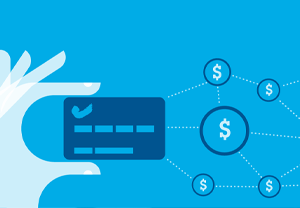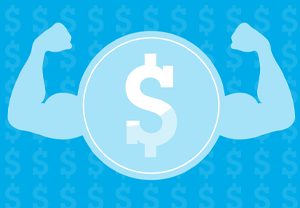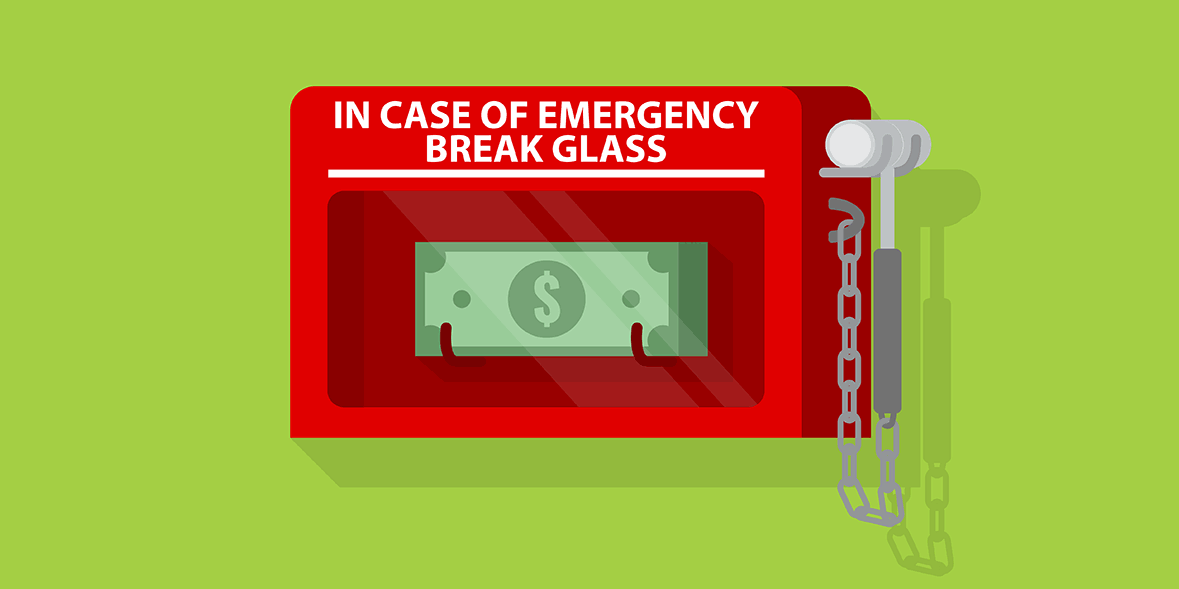Even if you’ve created a comprehensive budget and are sticking to it, it’s difficult to know what the future holds. An emergency fund can help you cover unexpected financial surprises and is an excellent way to get in the habit of saving money.
In this post, we’ll answer these common questions about emergency funds:
- Why should I have an emergency fund?
- How much should I save?
- Where should I keep the funds?
- When should I use my emergency fund?
- What should I do if my emergency fund isn’t enough?
Why should I have an emergency fund?
An emergency fund is a fundamental piece of a healthy financial foundation and can help you through common financial emergencies, such as:
- Job Loss or Loss of Income
- Medical or Dental Emergencies
- Unexpected Car or Home Repairs
- Other Unplanned Expenses
While setting money aside isn’t always easy, having an emergency fund can help you avoid painful financial outcomes including credit card debt, late payments, overdraft fees, unpaid medical bills, and even bankruptcy.
How much should I save?
There are countless opinions on just how much is the “right” amount to have in your emergency fund. The truth is that everyone’s situation is different, and the most important thing is to start somewhere – even if that means the $5 bill that’s hiding somewhere in your car’s center console.
One frequently cited rule of thumb is is to aim for having 3-6 months of living expenses in your emergency fund. A recent study found that a more modest sum of $2,467 could be the most accurate figure for most Americans.
If you’re starting with zero savings, setting aside just $20 per week can help you reach the $1,000 milestone in less than a year, which can cover most insurance deductibles or unexpected car or home repairs.
Once you’ve reached $1,000 in your emergency fund and have developed the habit of saving, take a closer look at your monthly expenses and decide how much more you want to save. If you have a family and are the sole income earner in your household, you may want to save more than someone who is single and has fewer fixed expenses.
Where should I keep my emergency fund?
While we hope you don’t have to use your emergency fund frequently, you want to keep the funds somewhere that is:
- Separate from your Everyday Spending Account
- Isolated from Market Fluctuations
- Readily Accessible
- Federally Insured
An ideal account for your emergency fund is our Reverse-Tier Money Max, which has no minimum balance requirement and pays 2.50% APY* on balances up to $2,000. With an RTMM account, your emergency fund can earn interest every month and money can be transferred instantly to your checking account through Online Banking or Mobile Banking.
You’ll want to stay away from more speculative investments like stocks or cryptocurrency which can fluctuate in value day-to-day. On the flip side, keeping emergency money in a Certificate or CD may make them inaccessible when you need them most.
When should I use my emergency fund?
Only in an actual emergency! This can include job loss or income reduction, unexpected auto or home repairs, and medical or dental emergencies.
You shouldn’t use your rainy day fund for unnecessary purchases, home improvement projects, or investments.
What should I do if my emergency fund isn’t enough?
Try to avoid using credit cards or turning to short-term lending. If you can’t avoid taking on debt, it may be best to use a low-interest personal loan to cover the expense – this allows you to keep track of the expense separately and ensures that you pay it off within a fixed timeframe.
If you’re dealing with a hospital bill, ask if the amount is negotiable or if assistance programs are available. Even if they can’t reduce the amount due, they may offer zero-interest payment plans.
If lost your job or another source of income, apply for unemployment and government assistance programs as soon as possible, while simultaneously looking for work. Some of these programs can take a few weeks to kick in, and the sooner you apply, the less you need to rely on your emergency fund.
Finally, see if you can sell unwanted or unused belongings or make temporary lifestyle changes to help with the expense.
- That guitar you bought in 2016 and still haven’t learned to play? Craigslist.
- Weekly restaurant outings? Try making a few meals at home. (Unless you think they’ll result in more hospital bills! Look up avocado hand if you don’t believe us.…)
- Have spare time? Find a side-hustle or a part-time job to add a second source of income.
Enjoy Added Peace of Mind
An emergency fund not only helps you practice your saving habits but gives you peace of mind knowing that you can weather most financial hardships.
Once you’ve reached your initial goal, you can redirect your savings to goal-based savings accounts for major purchases, holidays, or vacations.





